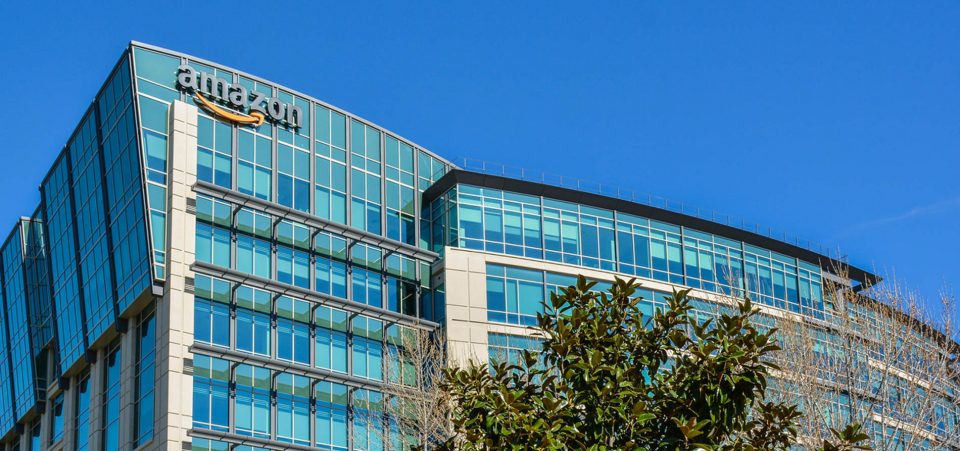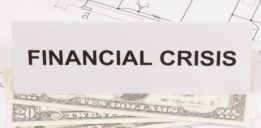The Retail Sector’s Price Slashing Harms U.S. Economy. It Could Trigger a Stock Market Crash
Amazon.com, Inc. (NASDAQ:AMZN) has made Jeff Bezos the richest man in the world. Well, at least he was until another business tycoon, Amancio Ortega, took over with his $85.0 billion fortune. The media-shy Ortega founded the Inditex SA (BME:ITX) (it owns the Zara and Massimo Dutti brands among others) clothing retail conglomerate. He opened his first store in 1975. Jeff Bezos launched Amazon about 20 years later. His business’s not-so-veiled secret is a cutthroat attitude to margins and it’s decimating the retail sector. Yet, the kind of price-cutting frenzy driving Amazon is threatening a massive stock market crash and the U.S. economy at large.
Amazon has gained a huge share of the U.S.—if not quite the global one (yet)—pie. By avoiding physical brick-and-mortar locations, Amazon can outsmart and outprice any shop for any commodity. Yes, getting the right fit might not be ideal when ordering your new suit or shirt. But, judging by the way most people dress nowadays, nobody’s going to notice you’re not living up to the Duke of Windsor’s sartorial standards. But this downfall of style, which the race for the lowest price retail industry has pursued, will force massive layoffs and cause major harm to the U.S. economy.
Also Read: Stock Market Crash 2017? This Could Trigger a Stock Market Collapse
It’s going to be a chain reaction. Amazon.com, which now also owns the heretofore high-end organic food purveyor Whole Foods Market, Inc. (NASDAQ:WFM), has amassed the power of a monopoly. Antitrust measures might have to be invoked. Amazon is also developing delivery mechanisms to make shopping on its website even more convenient. I might add, even more disruptive. To compete, other retail chains will have to respond by cutting their margins and expanding their online sales at the expense of physical store ones.
In the middle are tens of thousands of jobs. These will be squeezed out to make room for cheaper prices and a more cutthroat competitive environment. Moreover, rather than helping to Make America Great Again (MAGA) as President Trump promised, more jobs will head overseas. Then, there’s the deflationary pressure that such pricing policies generate. (Source: “Retail Bloodbath After Target Announces Price Cuts On “Thousands of Items”,” Zero Hedge, September 8, 2017.)
Consider that retailer Target Corporation (NYSE:TGT) has taken the fight back to Amazon. It’s not promoting the idea of a more patient and style-driven retail experience. No, it’s studying the products that have the highest demand. Then, it’s cutting or slashing those prices.
Then there’s the U.S. dollar, which is losing ground to all major currencies. The EUR/USD hasn’t been this low since 2015.
In short, Target just pre-preannounced that it will very shortly be guiding both margins and earnings much lower. The only question is whether Amazon will allow it to expand revenues by enough to offset the bottom line drop.
But, Target is just one of the retail chains forced to take desperate action to compete. Short of becoming high-end stores that cater only to the uber-rich, retailers like Bloomingdale’s, Macy’s Inc (NYSE:M), J C Penney Company Inc (NYSE:JCP), and Saks Inc (NYSE:SKS) are all being forced to consider desperate measures. Saks’ parent company, The Bay Inc., announced major job cuts early this year to save $350.0 million a year as part of a restructuring plan.
Will the move end up improving Saks’s fortunes? It’s unlikely. The pressure on prices is overwhelming and Saks—with few high exceptions—will have to budge and follow the trend, as it were.
The U.S. Federal Reserve wants to see inflation, even the hint of it, before it signs off on the next rate hike. Is it any wonder why inflation is not showing its true colors statistically? Cutthroat competition is keeping prices artificially low. Consumers may benefit for now. But soon, they will be left with fewer choices and more monopolies.
This has put the Fed under more pressure to act in order to bring back some discipline to the runaway stock market and raise the rate. That will prompt a major market crash. Traders will do what they know best: make money, regardless of the effects on the economy. Thus, they will short as vigorously as they have pumped the market up over the past 10 months or so.
That’s the risk of you and me getting perfectly functional jeans for less than $20.00 a pair. I mean, how on earth is that possible? Somebody had to make those jeans and the materials had to be grown and processed. If ever you wanted to see why the U.S. economy and the stock markets are in such an unrealistic bubble, spend a few minutes pondering the extreme margins that the retail sector is forced to adopt…no thanks to Amazon.






